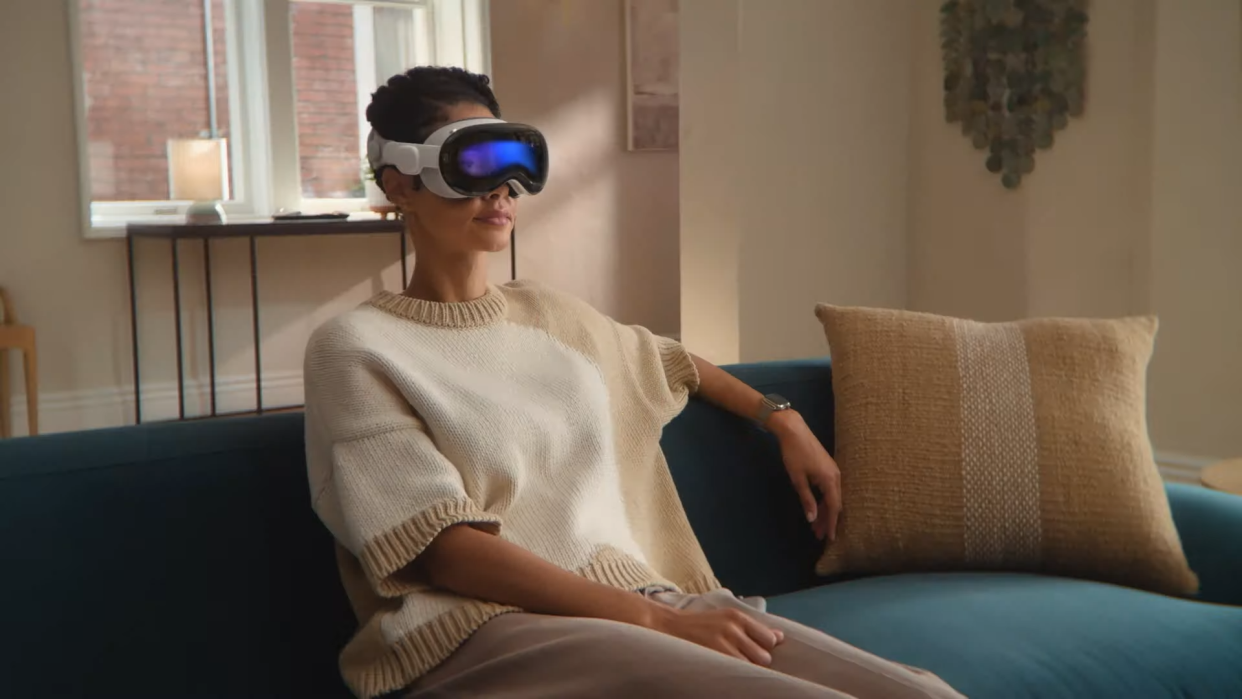visionOS 2 is now the second-best news for Apple's Vision Pro this week

Apple's WWDC is in full swing and the tech world has been left salivating over a slew of operating system updates for the iPhone, iPad, Mac, and Apple Watch. However, among the more familiar software updates was the first major milestone update for the software that powers the Apple Vision Pro — visionOS.
However, while visionOS 2 gives Apple and the spatial computing landscape plenty to celebrate, according to South Korean outlet ETNews, this week sees even better news arrive for the Vision Pro.
According to the report, an XR (extended or mixed reality) collaboration between LG Electronics and Meta has ended, likely putting the pair's rumored high-performance Vision Pro rival on ice.
visionOS 2: A very spatial upgrade for Vision Pro
While iOS 18 and Apple Intelligence stole much of the show, Apple's Worldwide Developer Conference (WWDC) also saw the reveal of visionOS 2 — a major milestone operating system update for the Vision Pro only four months on from the headset's February release.
The new OS features some quality-of-life improvements such as immersive pop-out media in Safari, Live Captions for real-time transcripts of audio and video content, Sensitive Content Warnings on questionable media, expanded travel options with train support, and new gesture recognition for easier navigation.
However, visionOS 2 also grants the Vision Pro the ability to turn any photos into spatial photos, an ultra-wide panoramic workspace in Mac Virtual Display, mouse support for navigation, and AirPlay support that allows casting directly to the headset from nearby iPhone or iPad devices.

Overall, visionOS 2 is an impressive update that expands the Vision Pro's capabilities. Does it do enough to justify the Vision Pro's formidable price tag? The answer to that will vary from person to person.
However, the Vision Pro with visionOS 2 stands out as the best premium option for both hardware and features — at least until we see a similar premium offering from one of Apple's mainstream rivals in the mixed-reality headset space.
That being said, one of the more likely candidates to challenge the Vision Pro, in the rumored Meta Quest Pro 2, may no longer pose much of a threat to Apple's spatial computing successes.
LG steps back from XR
In February, LG officially announced a partnership with Facebook owners and Quest headset manufacturer Meta with an aim to "combine the strengths of both companies across products, content, services and platforms."
This collaboration would likely have seen the two companies work together on the development of a "next-gen XR device" — reported to be a high-end, mixed-reality headset that would rival Apple's Vision Pro through joint ventures in software and hardware advancement.
However, it didn't take long for the two's honeymoon period to expire. Three months on from announcing their partnership, rumors began to surface that LG had grown cold on the idea of working with Meta and was instead scouting for other potential partners such as Amazon.
Yesterday, ETNews was able to confirm that those rumors were true and that LG Electronics has "agreed to end cooperation in the XR business with Meta." LG is also looking to reassign personnel in charge of its XR business to focus on research and development.
ETNews claims that the reason behind LG's decision was due to the slow rate at which the VR/AR/XR market is expanding, potentially leading the company to re-evaluate investments of its time and resources. Something Meta isn't concerned about after a recent gamesindustry.biz report revealed that Meta's Reality Labs division has been "losing money at a rate of more than $1 billion per month since June of 2022."

What it means for Meta and the Vision Pro
LG's decision to pull back from its partnership with Meta will no doubt cause Apple to breathe a sigh of relief as the most obvious and immediate challenge from another mainstream company to its premium Vision Pro headset will now likely be delayed by some time or put on ice indefinitely.
Before the parting of ways was official, LG and Meta's high-performance headset was already facing delays as its initial 2025 release window was pushed back to 2027. With the collaboration between the two companies now over, Meta may be forced to push back further its plans for a more affordable premium headset, if not seek out an entirely new partner and begin the process all over again.
That being said, all is not lost from this deal as LG will reportedly continue cooperating with Meta on research and development, including "technology development for XR headsets and on-device artificial intelligence." This keeps the channels of development open to Meta, potentially making technologies like LG's OLEDoS displays available for the company's next-gen headset in the future.
